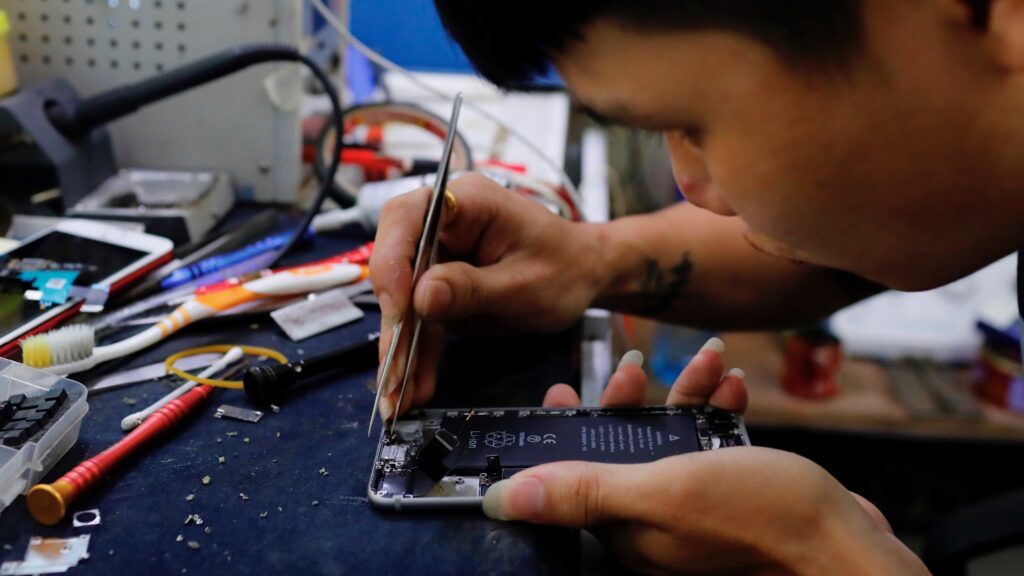
Understanding “Right to Repair”
Before we explore the FTC’s recent actions, it’s essential to understand what “Right to Repair” means:
- The “Right to Repair” movement advocates for consumers’ ability to repair and modify their own electronic devices.
- It aims to challenge manufacturers’ control over the repair process, which often forces consumers to use official repair services or buy new products.
- These rules are designed to promote competition in the repair market, reduce electronic waste, and empower consumers to extend the life of their devices.
In essence, “Right to Repair” rules assert that if you own a device, you should have the right to repair it yourself or choose where it gets repaired, without voiding warranties or facing other penalties.
The FTC’s Warning to PC Manufacturers
According to the Engadget article, the FTC has issued warnings to several PC manufacturers for violating “Right to Repair” rules. This action signals the Commission’s commitment to enforcing these regulations and protecting consumer rights. The warnings specifically targeted two main areas of violation:
1. “Warranty Void if Removed” Stickers
One of the primary issues identified by the FTC is the use of “Warranty Void if Removed” stickers on certain parts of PCs. These stickers are problematic for several reasons:
- They intimidate consumers by suggesting that any attempt to open or repair the device will automatically void the warranty.
- This practice discourages users from attempting even simple repairs or upgrades, forcing them to rely on manufacturer-approved services.
- In many cases, these stickers are not legally enforceable and violate consumer protection laws.
2. Language Discouraging Repairs
The FTC also took issue with language used by manufacturers in their manuals or online resources that discourages users from attempting repairs. This could include:
- Statements suggesting that opening the device will void the warranty.
- Warnings about the complexity or danger of self-repair that may be exaggerated.
- Directives to only use manufacturer-approved repair services.
Such language can create a chilling effect on consumers’ willingness to explore repair options outside of the manufacturer’s ecosystem.
Companies in the FTC’s Crosshairs
The Engadget article specifically mentions three companies that received warnings from the FTC:
- ASRock: A manufacturer known for motherboards and small form-factor PCs.
- Zotac: A company that produces graphics cards and mini PCs.
- Gigabyte: A major manufacturer of motherboards, graphics cards, and laptops.
These companies are significant players in the PC hardware market, and the FTC’s action against them sends a strong message to the entire industry about the importance of complying with “Right to Repair” regulations.
Implications for Consumers and the Tech Industry
The FTC’s enforcement action has several important implications:
For Consumers:
- Greater Repair Options: As manufacturers comply with these rules, consumers should have more freedom to repair their devices without fear of voiding warranties.
- Potential Cost Savings: The ability to use independent repair shops or perform DIY repairs could lead to lower repair costs.
- Extended Device Lifespan: Easier access to repairs could help consumers keep their devices functional for longer, reducing electronic waste.
For the Tech Industry:
- Changing Business Models: Manufacturers may need to adjust their approach to repairs and warranties.
- Increased Competition: The repair market could see more competition as independent repair shops gain easier access to parts and information.
- Innovation in Repairability: Companies might start to design products with easier repair in mind as a selling point.
Challenges and Considerations
While the FTC’s action is a positive step for consumer rights, it also raises some challenges and considerations:
- Balancing Act: Manufacturers will need to find a balance between protecting their intellectual property and complying with “Right to Repair” rules.
- Safety Concerns: There are legitimate safety concerns with some repairs, especially those involving batteries or high-voltage components. Clear guidelines will be needed.
- Quality Control: Manufacturers may worry about the quality of third-party repairs and how they might affect product performance or longevity.
- Consumer Education: There will be a need for increased consumer education about safe and effective repair practices.
The Road Ahead
The FTC’s action against these PC manufacturers is likely just the beginning of a broader push to enforce “Right to Repair” rules across the tech industry. Looking forward, we can expect:
- More Enforcement Actions: The FTC may target other companies and sectors beyond PC manufacturers.
- Industry Adaptation: Companies will likely start revising their policies and documentation to comply with these rules.
- Legislative Support: There may be additional legislative efforts to strengthen “Right to Repair” laws at both state and federal levels.
- Consumer Awareness: As this issue gains more attention, consumers may become more aware of their repair rights and demand greater repairability in their devices.
Conclusion: A Victory for Consumer Rights
The FTC’s action against PC manufacturers for violating “Right to Repair” rules represents a significant victory for consumer rights in the digital age. By challenging practices that discourage self-repair and independent repair services, the FTC is paving the way for a more open, competitive, and sustainable approach to electronics repair.
As this situation continues to evolve, it will be crucial for consumers to stay informed about their rights and for manufacturers to adapt to this changing landscape. The ultimate goal is a marketplace where consumers have true ownership of their devices, including the right to repair them as they see fit. While challenges remain, this action by the FTC is a significant step towards that vision.










Add Comment